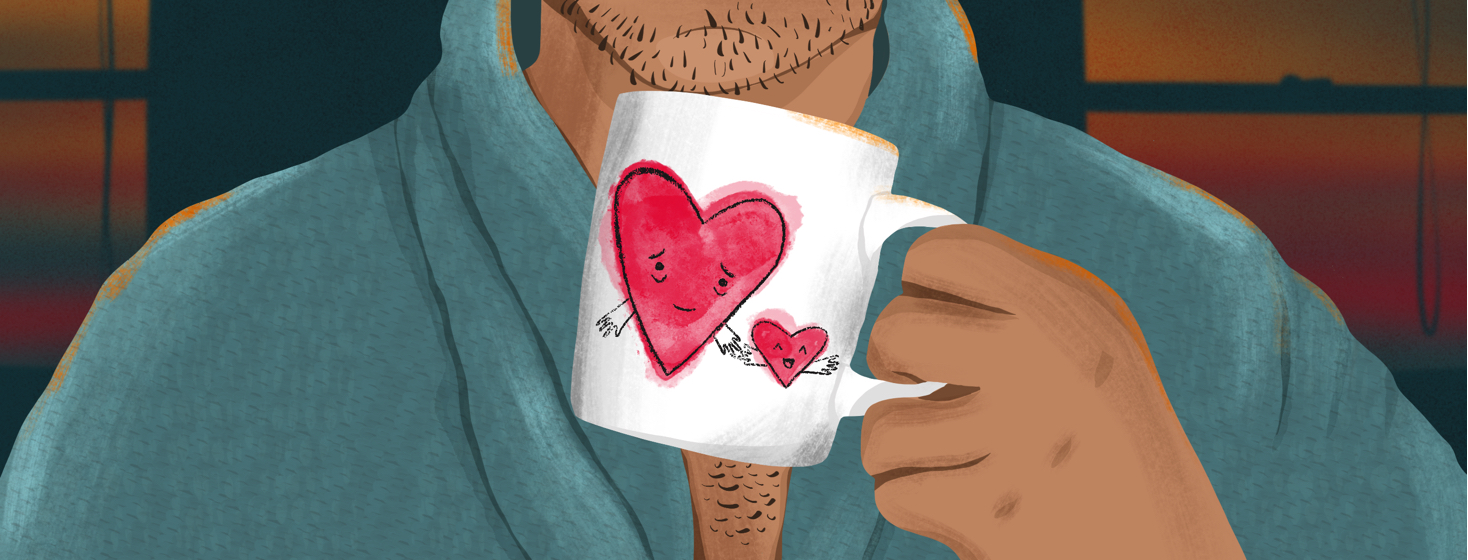What to Know About Postpartum Depression in Men
Many people assume postpartum depression (PPD) only affects women. However, new fathers can also experience depression after their child is born. PPD is not diagnosed as much as it occurs in men. It also is not studied in men as much as in women. Doctors must give men more information about PPD and screen for symptoms.1,2
About 1 in 4 dads have symptoms of depression 3 to 6 months after their baby is born, but stigma about mental health often prevents men from addressing it. Experiencing PPD does not make you a less capable or weaker father. But taking care of your mental health can help you be the best dad you can be.1,3
What is postpartum depression?
PPD is an episode of major depressive disorder soon after childbirth. A major depressive episode is defined as:1
- Multiple symptoms, including a depressed mood or a loss of interest in activities, happening during a 2-week period
- Distress or social problems caused by symptoms
- No other causes, such as substance abuse or other medical conditions
The definition of PPD is geared towards women. Men have slight differences in their symptoms and when they start. For example, symptoms can start months or a year after childbirth for men.1,2
How common is postpartum depression in men?
PPD is more common among men than people may think. About 10 percent of fathers experience depression before or just after their baby is born. PPD is most common for men 3 to 6 months after birth. Almost 25 percent of dads experience symptoms during this time.1-4
What causes postpartum depression in men?
Biological, psychological, and other factors cause PPD in men. We know that hormone changes in women can lead to PPD. New research has shown that fathers also experience changes in hormone levels after their partner gives birth. These hormone changes may help form a strong father-child bond. But they can cause or worsen symptoms of PPD.1,3,5
Other physical and psychological factors that can cause PPD in men include:1,3
- Getting less attention from your partner than before
- Feeling like the baby has bonded more with the mother
- Guilt about not being as excited as you think you should be
- Stress and pressure to provide for your child
- Lack of sleep
Men with a history of depression have a higher risk of PPD. Your partner having PPD increases your own risk of PPD. Marriage problems, financial stress, and unplanned pregnancy also increase your risk.1
What are the symptoms?
Symptoms of PPD look different for men than women. Some common signs of PPD in men include:1-3
- Feeling angry, irritable, indecisive, frustrated, discouraged, sad, or hopeless
- Loss of interest in work or hobbies
- Working all the time
- Isolation from friends and family
- Increase in drinking, drug use, or gambling
- Lack of sleep or appetite
- Trouble focusing
How is postpartum depression diagnosed?
Doctors often screen women for PPD, but not men. Doctors should screen for PPD in men during the first year after their child is born. Questionnaires and screening tools can help doctors assess your symptoms.1
Men often share less about their feelings than women. So you may not be telling your doctor about PPD symptoms. Your doctor may ask your partner or friends questions to get more information. This can help the doctor understand how your mental health may have changed.1
How is postpartum depression treated?
There is no shame about PPD. It is normal to have mood changes as you adjust to a new baby. But men are half as likely as women to seek help for mental health. Unfortunately, many men seek treatment only when it causes their partner distress.2,3
The reasons for PPD are largely out of your control. So having PPD does not mean anything about your abilities as a father. Ignoring PPD symptoms can affect your mental health. It can affect your parenting and increase your child’s risk of depression.1
Talk to your doctor if you notice symptoms of PPD. Your doctor may suggest focusing on self-care. This includes:2,3
- Eating well
- Exercising regularly
- Resting and napping when possible
- Avoiding drinking and reckless behaviors
- Talking about your feelings with your partner, family, or friends
- Joining support groups
If symptoms last more than a couple weeks, consider talking to a therapist or counselor. Asking for help is a sign of strength. It means you are trying to be the best dad possible. A therapist can work with you to address symptoms of PPD. They may suggest medicines, such as selective serotonin reuptake inhibitors.1,3
PPD treatments will not solve every problem that you face as a new dad, but treatment can make it easier to cope with changes and tackle obstacles. Treatment can also help you and your partner better support each other. It can help you be the best father you can be.2
